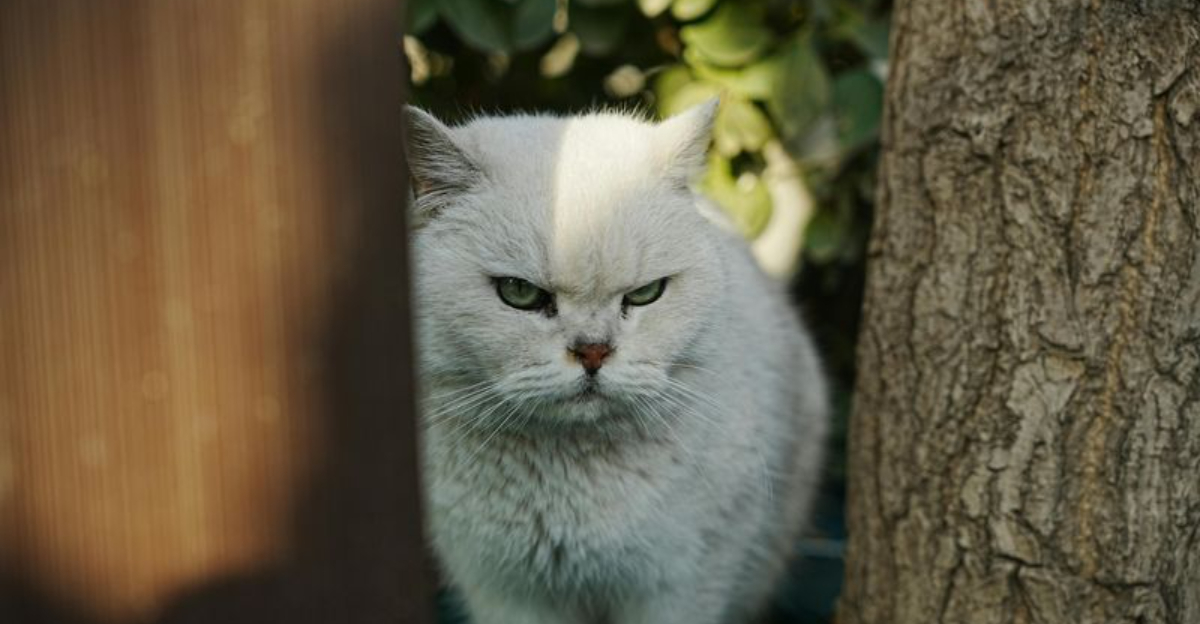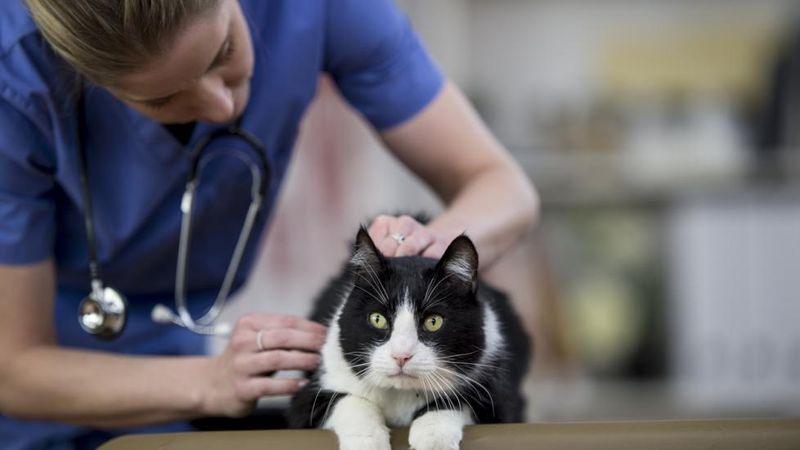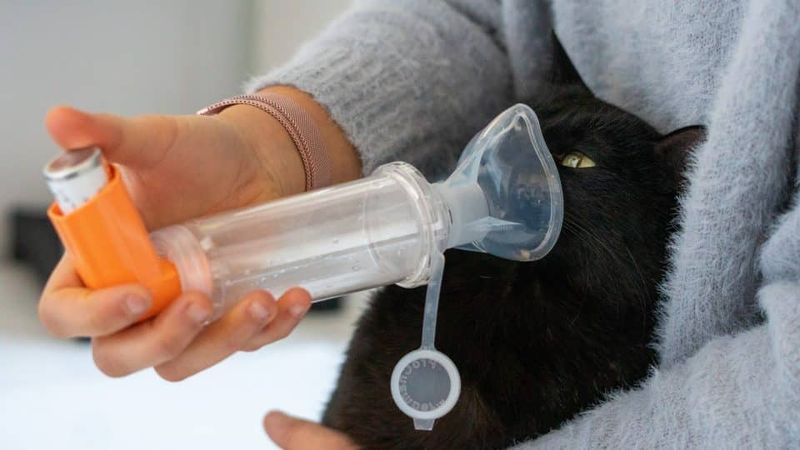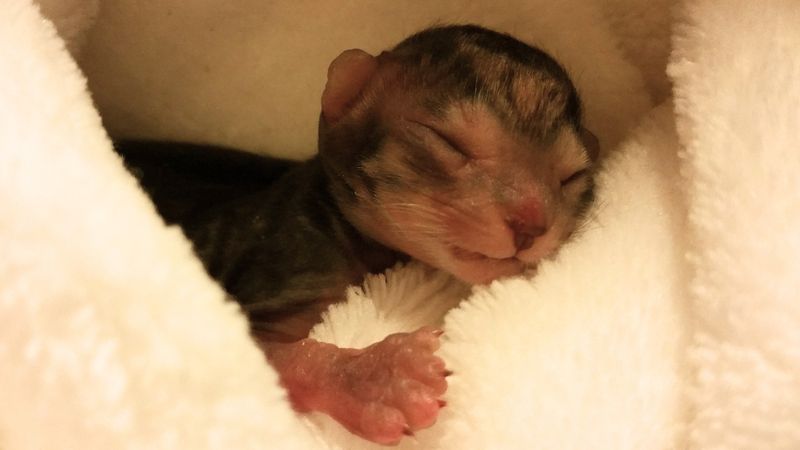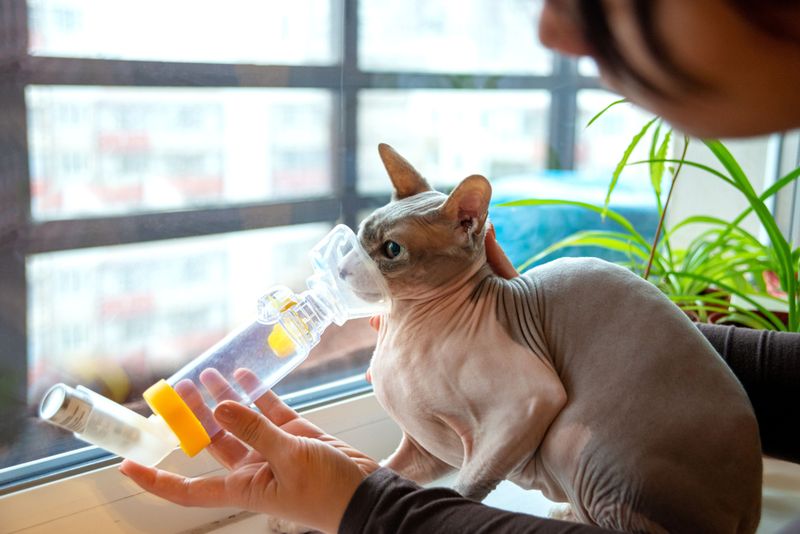📖 Table of Content:
- 1. Increased Risk of Lymphoma
- 2. Higher Likelihood of Oral Cancer (Squamous Cell Carcinoma)
- 3. Respiratory Problems and Chronic Bronchitis
- 4. Weakened Immune System
- 5. Heart Disease
- 6. Damage to Liver and Detoxification Systems
- 7. Increased Risk of Birth Defects and Kitten Mortality
- 8. Shortened Lifespan Due to Environmental Stress
As devoted cat owners, we go to great lengths to protect our feline companions from harm — we choose the right food, provide warm places to sleep, and shower them with love. However, many pet parents remain unaware of an invisible but lethal threat in their home: secondhand smoke. Just as it poses serious health risks to humans, tobacco smoke can have devastating effects on cats, many of which are silent and irreversible.
Unlike people, cats can’t voice discomfort or seek fresher air when the room fills with smoke. Their smaller lungs and unique grooming behaviors make them especially vulnerable to the thousands of toxins found in cigarette smoke. Whether it’s through direct inhalation, toxic residue on their fur, or exposure to contaminated surfaces, cats face a constant risk when they live in a smoking environment.
In this article, we’ll break down eight scientifically-supported ways that secondhand smoke can shorten your cat’s life. From cancer and respiratory damage to the harmful effects on unborn kittens, these risks are serious and sobering. By understanding them, you can take vital steps to protect your pet’s long-term health. If you smoke, this information might even inspire a lifestyle change — not just for yourself, but for your beloved feline friend.
1. Increased Risk of Lymphoma
Cats exposed to secondhand smoke are at a significantly higher risk of developing lymphoma, a cancer that attacks the lymphatic system. This type of cancer is known for its aggressive spread and poor prognosis in felines. Studies have shown that the risk of lymphoma doubles in cats living with smokers, and it triples if smoke exposure lasts more than five years. What makes lymphoma especially dangerous is its ability to remain undetected until it has reached an advanced stage. Symptoms like swollen lymph nodes, weight loss, and lethargy often mimic other common illnesses, delaying diagnosis. Even with chemotherapy, survival time is typically limited to a year or less. The connection between environmental smoke and lymphoma in cats is one of the most well-documented examples of how toxic air can turn deadly.
2. Higher Likelihood of Oral Cancer (Squamous Cell Carcinoma)
Each time a cat grooms itself, it may be ingesting toxic particles that have settled on its fur from smoke. This behavior, so essential to feline hygiene, becomes dangerous in environments where cigarettes are regularly used. One of the most concerning outcomes is squamous cell carcinoma, an aggressive oral cancer linked directly to smoke exposure. The toxins from smoke are absorbed through mucous membranes in the mouth, leading to cellular mutations. These cancers are often found under the tongue or along the gums, where they cause pain, bleeding, and eating difficulties. Treatment is difficult, often involving surgery and has a low success rate. What makes this tragic is that the same grooming behavior meant to protect your cat ends up hastening its decline.
3. Respiratory Problems and Chronic Bronchitis
What begins as mild coughing or sneezing can evolve into something far more serious in a cat exposed to secondhand smoke. Tobacco smoke contains fine particles that irritate the airways and damage the lungs over time. Cats may develop feline asthma, chronic bronchitis, or even permanent lung scarring from prolonged exposure. These conditions make breathing difficult and can lead to oxygen deprivation if not treated. As the condition worsens, even simple movements like walking or jumping may cause distress. Frequent vet visits, inhalers, and medications become necessary just to manage daily life. Eventually, untreated respiratory damage can prove fatal through respiratory failure or secondary infections.
4. Weakened Immune System
Not all the dangers of secondhand smoke are immediately visible — some operate by weakening the cat’s natural defenses. When a cat’s immune system is compromised, its ability to fight off viruses, bacteria, and even minor infections is drastically reduced. The chemicals in smoke disrupt white blood cell function, which is crucial for healing and protection. Cats in smoking homes are more likely to develop long-term illnesses, suffer complications from minor wounds, and respond poorly to vaccinations. This weakened immunity often becomes more pronounced with age, leaving senior cats especially vulnerable. Young kittens, whose immune systems are still developing, are at even greater risk. Smoke exposure silently chips away at a cat’s resilience, making everyday health threats far more dangerous.
5. Heart Disease
Sometimes the damage lies not in the lungs, but in the heart — secondhand smoke strains your cat’s cardiovascular system in subtle but serious ways. Chemicals like nicotine and carbon monoxide reduce oxygen in the blood and increase the heart’s workload. Over time, this leads to high blood pressure, weakened heart muscles, and possibly fatal arrhythmias. Cats experiencing heart stress may show reduced stamina, sudden fainting, or rapid breathing. Because feline heart conditions often remain hidden until they’re advanced, warning signs can go unnoticed. Even cats that seem calm and healthy may be silently suffering from smoke-induced cardiovascular damage. When discovered late, treatment becomes difficult and expensive, with limited options for full recovery.
6. Damage to Liver and Detoxification Systems
The liver plays a critical role in filtering toxins, but cats’ livers are not built to handle the chemical complexity of cigarette smoke. Unlike humans, cats lack certain enzymes needed to detoxify harmful substances like nicotine, benzene, and formaldehyde. As these toxins accumulate, the liver becomes inflamed and begins to deteriorate. Early symptoms such as vomiting, lethargy, or yellowing of the eyes may indicate liver stress. Without timely intervention, liver disease can progress to complete organ failure. This condition is particularly dangerous because it often goes undiagnosed until damage is advanced. Even small, repeated exposures can place an unbearable burden on your cat’s liver over time.
7. Increased Risk of Birth Defects and Kitten Mortality
When it comes to expectant mother cats, secondhand smoke introduces risks not just to her health, but to the lives of her unborn kittens. Toxic compounds can cross the placenta and affect fetal development in utero. The results may include miscarriage, low birth weight, or birth defects that impair survival after birth. Nursing mothers exposed to smoke also carry these toxins on their fur and skin, passing them on to vulnerable newborns. Kittens, with underdeveloped immune and respiratory systems, are particularly defenseless. This exposure can lead to failure to thrive, chronic illness, or sudden death in early weeks. Creating a smoke-free environment is essential for protecting the most fragile members of a feline family.
8. Shortened Lifespan Due to Environmental Stress
Stress is an often-underestimated factor in a cat’s overall health, and environmental smoke contributes more than you might think. Cats are highly sensitive to changes in air quality, smells, and the presence of irritants in their environment. Prolonged exposure to cigarette smoke causes not only physical harm but also chronic stress. This stress can manifest through behavioral changes like hiding, over-grooming, or loss of appetite. Over time, these behaviors impact your cat’s immune function, digestion, and sleep — all vital to longevity. A constant state of low-level stress weakens the body and increases vulnerability to disease. What seems like a harmless habit in your home can quietly chip away at your cat’s lifespan from every angle.
